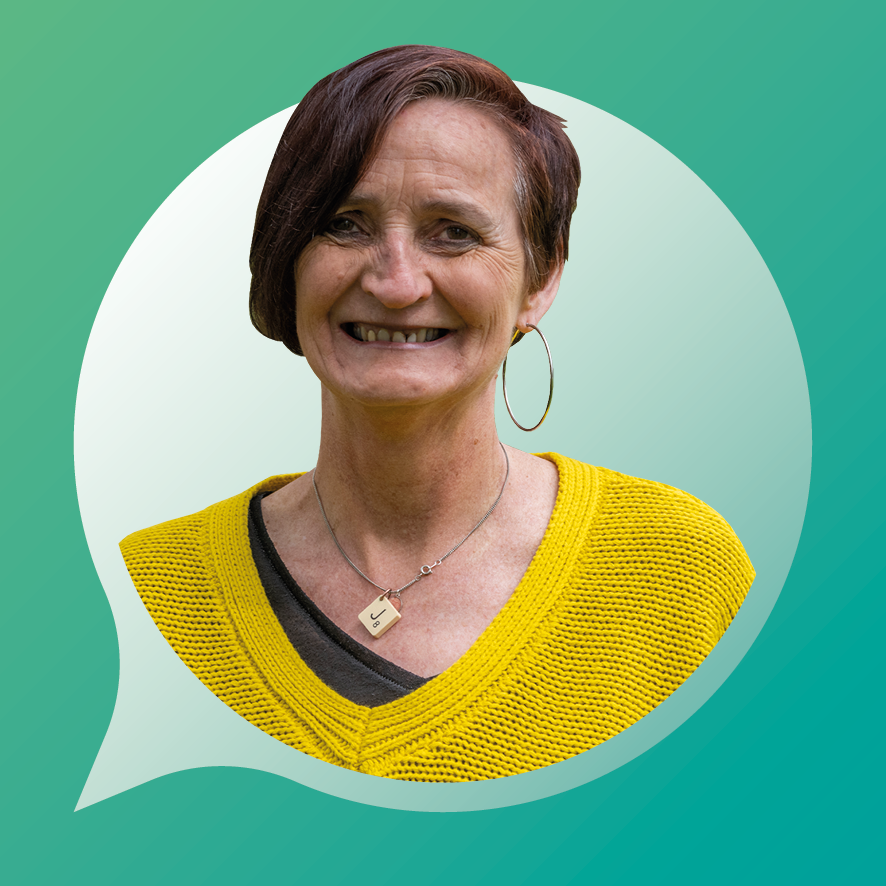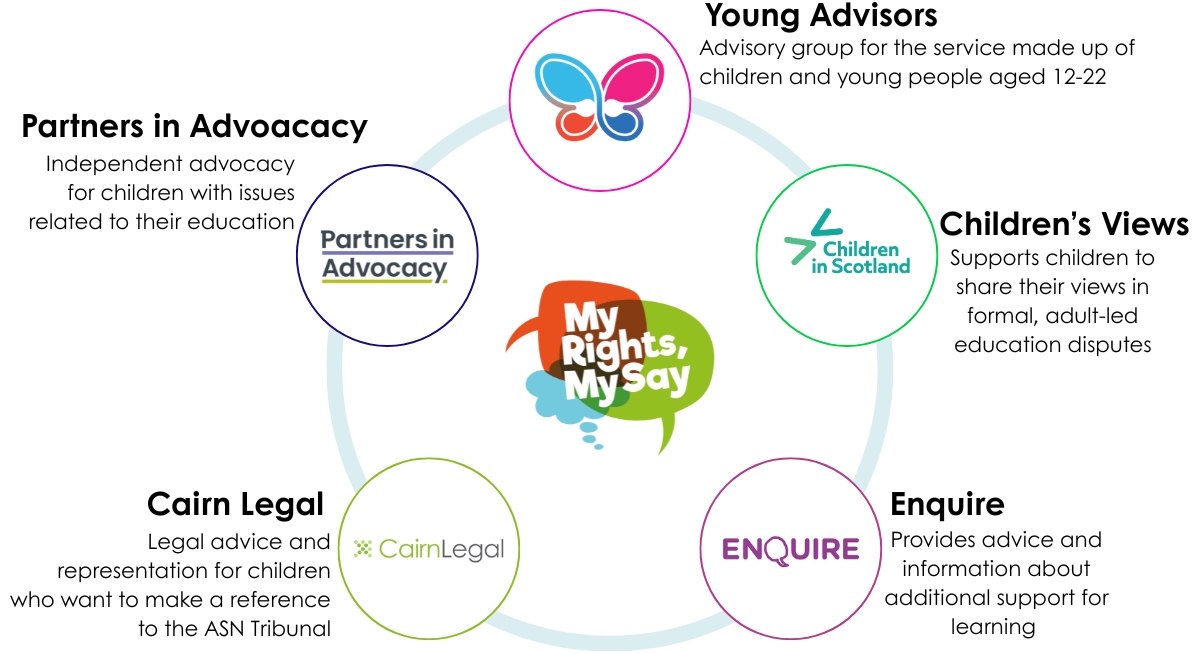Innes Burns meets Alan Fleming of Partners in Advocacy to talk about children’s rights, career highlights and what advocacy means to him.
Innes Burns:
So hello, Alan. How are we? Tell us a bit about Partners in Advocacy and about your role as well.
Alan Fleming:
Hello.
Partners in Advocacy, as the name says, is an advocacy service where we advocate on behalf of both adults and young people. I work for the young people's service, which is the My Rights, My Say service within Partners.
We work mainly with 12 to 15-year-olds who are having issues at school, mainly if they have an additional support need. So they might have an issue at school because of that need, and then they would contact us at Partners in Advocacy to advocate on their behalf.
IB:
So take us through what advocacy actually is. What’s a typical day like for you, Alan? What kind of situation does a child find themselves in when they contact you, and how do you act on that?
AF:
There are loads of reasons why a young person might contact us - not going to school at all, going intermittently, suddenly leaving school during the day because they’re overwhelmed, or even sitting in school feeling overwhelmed and hiding – in a corner, in an empty classroom, or in the toilets, which is quite common.
They’re just trying to hide because school is overwhelming. They don’t understand what’s happening, they don’t understand the work, and they’re not getting fully supported.
So they contact us. Usually, a parent contacts us, or sometimes a school or another professional like a social worker. But more than half the referrals come from parents who say, “My young person is having a problem. Can you support them?”
We’ll then contact the parent first, ask what the issue is - we usually have a bit of information from the referral form – then go and meet the young person. That could be online, like we are today, or face-to-face, or in whatever way the young person prefers – WhatsApp, messaging, email – whatever works for them.
IB:
Sure. And once you’ve identified the problem, what do you then do? Do you go to the school? Is it often a phone call? How do you actually advocate for the young person?
AF:
We take the young person’s views first – because they’re my boss. They instruct me on what they want me to do.
I can’t go to the school and say, “I don’t think you’re doing this right, this is what you should do.” That’s not advocacy. My job is to listen to the young person, take their views, and then contact the education authority first to inform them the young person is seeking advocacy support.
After that, we contact the school and arrange a meeting – that could be with a teacher or a larger group, depending on the issue. Ideally, it’s a smaller meeting with one or two teachers, the young person, myself, and the parent.
We talk about the issues, which have been written down, and then it’s up to the school to come up with a solution - not the young person, not me. I’m just advocating.
If the school offers a solution, we review it, go back and see if the young person is willing to try it, then see how it works. If it doesn’t work, we can try something else. If it does work, that’s usually the end of the advocacy partnership.
IB:
Do you need to remind schools it's a legal obligation to meet those needs? Do you ever get pushback?
AF:
Yeah.
Usually, in the letter we send, the legal obligations are clearly laid out. Everything’s written down – this is the law, this is what needs to happen.
In terms of schools, I’ve worked with some fantastic teachers over the years. But, as everyone knows, there are some teachers – and some schools – that maybe haven’t moved with the times.
The easiest way to explain it is: some of them are still reading the 1970s teacher training manual. I try to remind them - this is the 21st century, and we need to look at other ways of supporting young people.
A recent example: a young person loved their workshop class - using their hands, doing practical work. But they hated maths and would leave maths class and go sit in another classroom.
Eventually, the school found out and banned him from the workshop class because he hadn’t followed protocol. That’s a 1970s approach – punishing a child by taking away something they love, instead of addressing the real issue.
He was showing with his feet that he had a problem with maths and needed support. So it’s up to us to go in and ask the school, “Do you think what you did was right?” and then take it from there.
IB:
What’s your favourite part of the job? Is there a moment that stands out, where you’ve ended your day and thought, “Wow, I’ve made a huge difference”?
AF:
My favourite part is meeting new people - especially young people. It’s a partnership – that’s why it’s called Partners in Advocacy.
Technically, they’re my boss, but we work together. And I meet people from all walks of life – from really affluent backgrounds to working class. You never know who you’re going to meet, and that’s a great part of the job.
Previously, I worked in social work and drug support – mostly in working class areas – which was still great, but here I meet a much broader range of people.
I’m not someone who needs praise or trophies, but I do appreciate when young people or parents recognise the difference we’ve made.
Recently, a young person who’d been out of school for over a year managed to return. It was mainly the mum I’d been working with, but the dad phoned me specifically to say thanks – that we’d made a huge difference and he didn’t think it would have been possible without us.
That meant a lot, especially since I’d never even met him.
IB:
That’s amazing. I can see a lot of emotion in you when you speak about that. Just briefly, what does Partners in Advocacy and My Rights, My Say mean to you personally?
AF:
To me, it means making things right. I hate power imbalances – people using their power to make others’ lives miserable.
We speak to young people hiding in toilets, not going to school, because they’re miserable – and sometimes schools just haven’t looked at the issue the right way.
Advocacy gives us a chance to go in, help teachers hear the child's voice, and raise it properly. That’s probably the most important thing for me.
Even if we don’t always get a perfect result, at least the young person had a chance to be heard.
One thing parents often say to me is that when an advocate is in a school meeting, the tone is different. The action points are different. The results are different – compared to when they were doing it alone.
Alan Fleming is an Advocacy Worker at Partners in Advocacy. Visit their website to find out more about their work.











